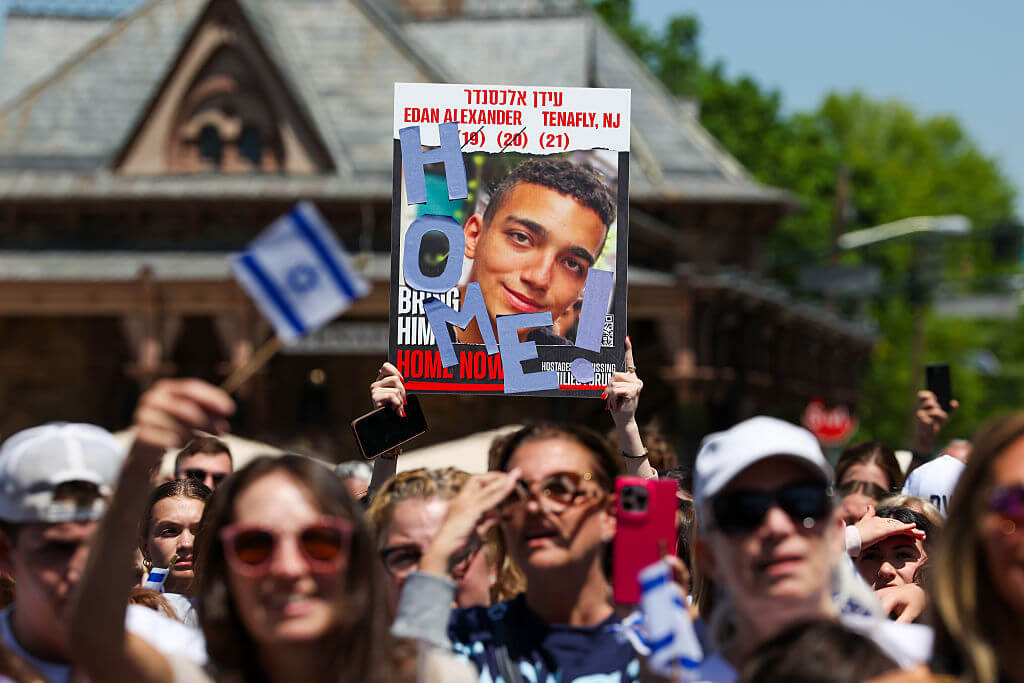‘I Go Among The Public To Study How To Write for It.’
I wanted to know what sort of impression the new “Forverts” was making on the public; how they reacted to the various articles; what was good, what had to be changed, and what sort of other news it would be advisable to introduce.
For this purpose, at the beginning, I often spent two or three hours on the street, in barbershops, or in restaurants. That was mainly my “job” late Sunday morning. Then the barbershops are crowded, and you wait a long time before you hear “next.” So you can sit and listen to the conversations, and sometimes you can slip in a few questions yourself. In this way I spent a half hour in one place, a half hour in another.
I also used to stop at the newspaper stands and chat with the salesmen and the customers. Because for several years I hadn’t taken part in any mass meetings, and during this time many new immigrants arrived, nobody knew who I was. Sometimes somebody did recognize me, but that also wasn’t so bad.
I also used to take observatory walks with the goal of writing a special sort of cultural interest articles, which I called “In Passing.” Going through the streets, to the office or from the office, I used to note down various little scenes or characters.
Several times I got up very early to see what was going on in the Jewish neighborhood at that hour — how the stores were opened; how the market on Hester Street took shape; how poor people searched through garbage barrels; how tailors run to work at six in the morning; how an hour later new characters appear, new images, new scenes. In this way I used to put together articles that appealed to our readers — often in a deeper and more delicate way than what usually interests them in a newspaper.
One time, for example, I especially observed the poor Jewish streets in the late afternoon, when the sun goes down. A “sunset” is a nice image. Almost every poet describes it. Usually it goes together for them with fields and forests or with the sea. But there is also a magic to the sunset among the tenements. When you look from afar at the rows and rows of poor windows and fire escapes that are hung with rags, it seems as if they were dipped in gold and lightened. The impoverished everyday gives way to a poetic image from a dream.
For a culture article like that, we usually received letters from the readers. Or else I described a Jewish organ grinder without feet, who sat in a little cart that he paid somebody to push. The organ grinder plays a deep and sad Jewish tune. The women hurrying by quickly with their baskets suddenly stop, as if the tune had touched their hearts. They can’t go further. They stop, full of pity, and throw pennies onto the beggar’s plate.
Translated by Leizer Burko.
The Forward is free to read, but it isn’t free to produce

I hope you appreciated this article. Before you go, I’d like to ask you to please support the Forward.
Now more than ever, American Jews need independent news they can trust, with reporting driven by truth, not ideology. We serve you, not any ideological agenda.
At a time when other newsrooms are closing or cutting back, the Forward has removed its paywall and invested additional resources to report on the ground from Israel and around the U.S. on the impact of the war, rising antisemitism and polarized discourse.
This is a great time to support independent Jewish journalism you rely on. Make a gift today!
— Rachel Fishman Feddersen, Publisher and CEO
Support our mission to tell the Jewish story fully and fairly.
Most Popular
- 1

Fast Forward Ye debuts ‘Heil Hitler’ music video that includes a sample of a Hitler speech
- 2

Opinion It looks like Israel totally underestimated Trump
- 3

Fast Forward Student suspended for ‘F— the Jews’ video defends himself on antisemitic podcast
- 4

Culture Cardinals are Catholic, not Jewish — so why do they all wear yarmulkes?
In Case You Missed It
-

Culture Is Pope Leo Jewish? Ask his distant cousins — like me
-

Fast Forward ‘New Jersey tough’: Gov. Phil Murphy on released Hamas hostage Edan Alexander, a Tenafly native
-

Yiddish World How Yiddish found a home in Sweden (online lecture in Yiddish)
-

Fast Forward Hamas releases Edan Alexander, last living American hostage, to Red Cross
-
Shop the Forward Store
100% of profits support our journalism
Republish This Story
Please read before republishing
We’re happy to make this story available to republish for free, unless it originated with JTA, Haaretz or another publication (as indicated on the article) and as long as you follow our guidelines.
You must comply with the following:
- Credit the Forward
- Retain our pixel
- Preserve our canonical link in Google search
- Add a noindex tag in Google search
See our full guidelines for more information, and this guide for detail about canonical URLs.
To republish, copy the HTML by clicking on the yellow button to the right; it includes our tracking pixel, all paragraph styles and hyperlinks, the author byline and credit to the Forward. It does not include images; to avoid copyright violations, you must add them manually, following our guidelines. Please email us at [email protected], subject line “republish,” with any questions or to let us know what stories you’re picking up.















